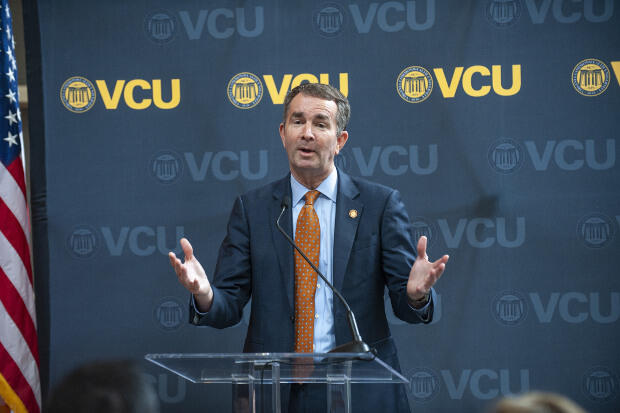
Aug. 13, 2018
Governor implores the next generation of health care providers to rethink pain management
Share this story
Addiction, which is as common as diabetes and depression in the U.S., continues to claim the lives of thousands of Virginians every year. Virginia Commonwealth University President Michael Rao, Ph.D., vowed in his fifth State of the University Address in January to address the health crisis through research, treatment and education efforts at the university and health system.
As a physician, Virginia Gov. Ralph Northam is concerned with the medical community’s role in curbing the opioid addiction epidemic. Last year, 1,227 Virginia residents died from opioid overdoses, according to the Virginia Department of Health. The death toll rose from 1,138 deaths in 2016, state health data showed. At VCU Medical Center, emergency department visits due to opioid overdoses more than doubled from 273 in 2015 to 657 in 2017.
On Aug. 20, Northam will visit VCU’s MCV Campus to present a Grand Rounds on pain killer prescription practices and pain management. Grand Rounds are a traditional patient-centered education method at medical schools, often consisting of presentations on specific medical problems and discussion of treatments. The event is third in a series of four Grand Rounds lectures Northam is leading at Virginia medical schools across the state.
Ahead of the lecture, Northam spoke with VCU News about the opioid epidemic and outlined steps health care providers can take to combat the crisis.
What inspired you to present to medical students across the state on the opioid epidemic?
This is Virginia’s foremost public health challenge and our medical professionals are on the front lines of addressing this crisis. As a doctor myself, I want to get the message out to our future physicians that they will play a critical role in combating this issue.
What role do future health care providers have in curbing the opioid epidemic?
The challenges of addiction can begin with a prescription from a provider. I believe we need to start thinking innovatively about how we treat acute and chronic pain, prescribing in a safer way, and recognizing the signs of dependence.
As a physician, why is addressing the opioid addiction crisis in Virginia of particular importance to you?
This crisis of opioid addiction and overdose is killing Virginians and hurting families and communities in every part of the commonwealth. In 2017, Virginia saw 1,227 overdose deaths due to opioids, and 1,534 overdose deaths due to any drug. I meet people in every part of Virginia who have been personally affected by opioid abuse. We can’t sit by while these tragedies continue, and as a physician and now governor, I want to do everything I can to put an end to this epidemic.
How do you foresee the opioid addiction trend changing during your term in office, and how will future health care providers impact that change?
As a provider, and now as a public servant, I know that to tackle the opioid crisis we need to work together and approach the problem from every angle.
Our soon-to-be physicians are a key part of the solution.
At the state level, we have taken steps to limit legal opioids and our state police now carry Narcan, which can reverse an overdose. With Medicaid expansion, we are freeing up millions of dollars that we can put toward substance abuse prevention and treatment. And we received federal grant money that will help us build upon important partnerships between public safety and public health officials, and provide support services to help individuals in recovery.
Our soon-to-be physicians are a key part of the solution and I hope this conversation will better prepare them to help us battle this public health emergency.
Subscribe to VCU News
Subscribe to VCU News at newsletter.vcu.edu and receive a selection of stories, videos, photos, news clips and event listings in your inbox.










